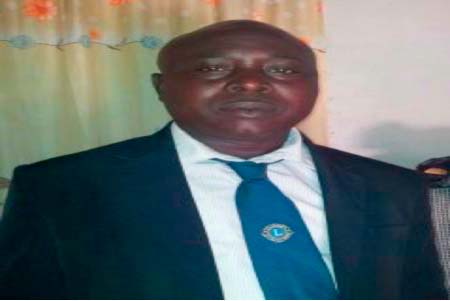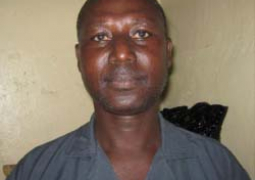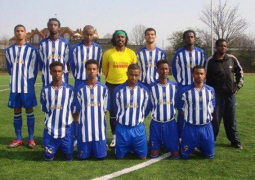
The
Banjul High Court presided over by Justice E.O. Dada yesterday dismissed the
writ of habeas corpus to produce UDP Solo Sandeng, after the respondent admitted
in their affidavit that Solo Sandeng died in custody.
Delivering
her judgment, Justice Eunice Dada Oshim said court papers revealed that “the
Government has set in motion an inquiry surrounding his death”.
She
said an originating summons dated 25 April 2016 filed by the applicant was
seeking a writ of habeas corpus to have the body of Ebrima Solo Sandeng, and
for the court to make a declaration for Solo Sandeng who was detained to be
released unconditionally.
She
added that the affidavit stated that the applicant went on a peaceful protest
on 14 April 2016 at Westfield, where he was arrested and since then no one
heard of him, and his family was being denied access to him and there was no
reason stated why he was not charged and brought to court, which was a
“violation of the applicant’s right”.
The
affidavit sworn to by one Nogoi Njie, the deponent, stated that she saw the
applicant in a deplorable state due to the beatings he got at the NIA, and that
was the last time she heard or saw him.
The
respondent’s affidavit deposed to by one Saihou Omar Jeng, Director of
Operations at the NIA headquarters, stated that on 14 April 2016, an “unlawful
protest was held in the Westfield area of Kanifing Municipality. The
demonstrators held banners calling for unspecified electoral reform and a
change of Government.”
The
deponent stated that “the applicant and others were approached by law
enforcement officials who inquired whether they had a permit, and they replied
in the negative. That the applicant and the others were told to disperse, and
there was an attempt to arrest the leader of the demonstration, which was the
applicant, but he resisted arrest.”
The
deponent admitted that the applicant was denied access to his family, and that
the applicant lost his life in the whole process of arrest and detention; that
the Government has set in motion an inquiry surrounding his death, and that the
reason for not charging the applicant was as a result of “his death.”
The
judge further said that counsel for the applicant asked the court to make an
order for the respondent to produce the body of the applicant, and to conduct
proper investigation to ascertain the cause of his death and bring forward
facts concerning his death.
Counsel
Binga D. for the respondent argued that the government had established a
committee to look into the death of the applicant.
The
judge added that she had looked carefully through the application before her,
and that it was revealed in the application before her that the applicant was
dead.
“While
the main issue touches on the life of Solo Sandeng, this application was
dealing with a dead body. This court cannot extend its armpit outside its
jurisdiction. The court cannot, therefore, make an order to produce the dead
body of Solo Sandeng.”
“The
application is incompetent for the fact that it has been overtaken by
circumstances, and hereby dismissed.”



